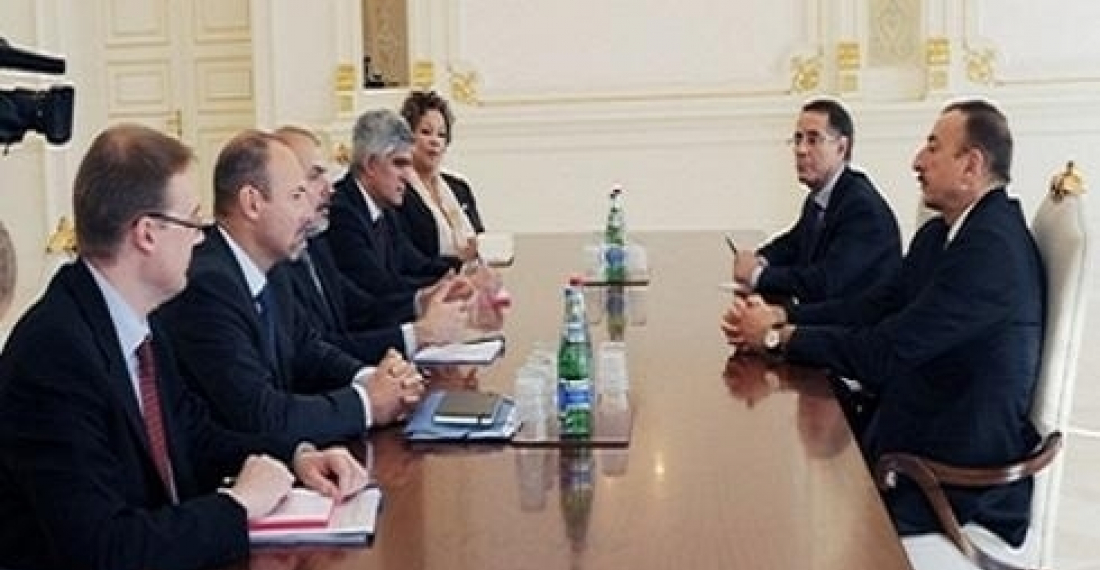The President of Azerbaijan, Ilham Aliev, met in Baku on Monday with the European Union Special Representative for the South Caucasus, Philippe Lefort who is currently visiting the region. The Press service of the Azerbaijani President said that the meeting focused on the Nagorno-Karabakh conflict.
Lefort was the first senior EU official to meet President Aliev after the 9 October Presidential elections
Commonspace.eu political editor said in a comment that "relations between Azerbaijan and the EU are at a delicate moment. On the one hand the two sides have many common interests and reasons to develop and deepen the existing relations between them. On the other hand EU concerns about governance issues in Azerbaijan create distrust between them. The two sides need to remain engaged in open and frank dialogue on those issues that separate them but should work even harder to promote those issues that both identify as mutually beneficial. For example the EU has much to contribute towards the peaceful settlement of the Nagorno-Karabakh conflict. On its part Azerbaijan has been a reliable partner of the EU on energy issues. Both sides therefore have a basis on which to build a new co-operation"
Duiring his visit to Baku Ambassador Lefort also met the new Azerbaijani Defence Minister Zakir Hasanov. This was Hasanov's first meeting with a foreign envoy since his appointment last week. A number of changes are currently taking place in the senior echelons of the Azerbaijani Defence Ministry as the new Minister settles into his job.
source: commonspace.eu
photo: EUSR Philippe Lefort meeting President Aliev of Azerbaijan on 29 October 2013. (picture courtesy of the press service of the Azerbaijani President)







